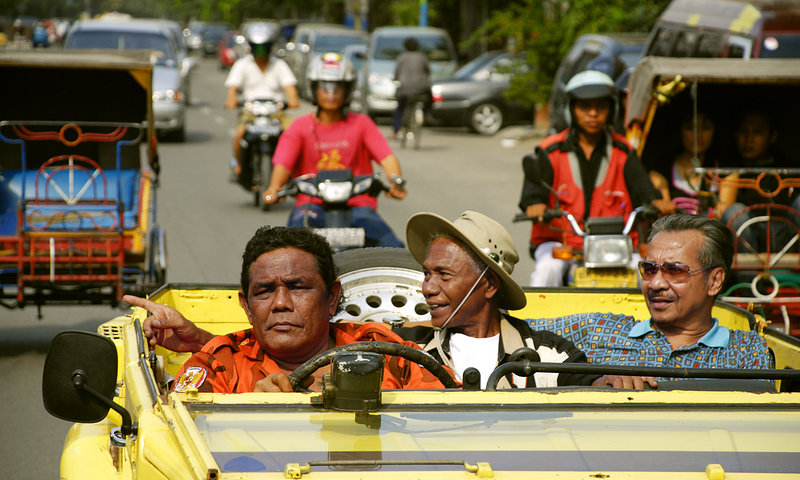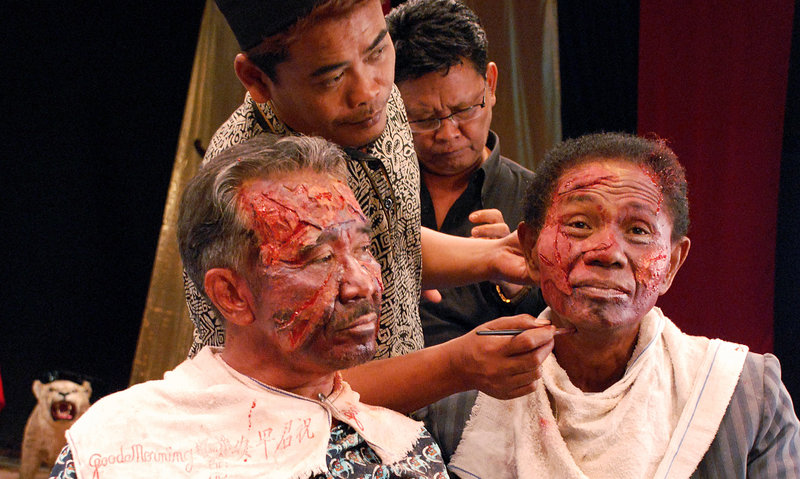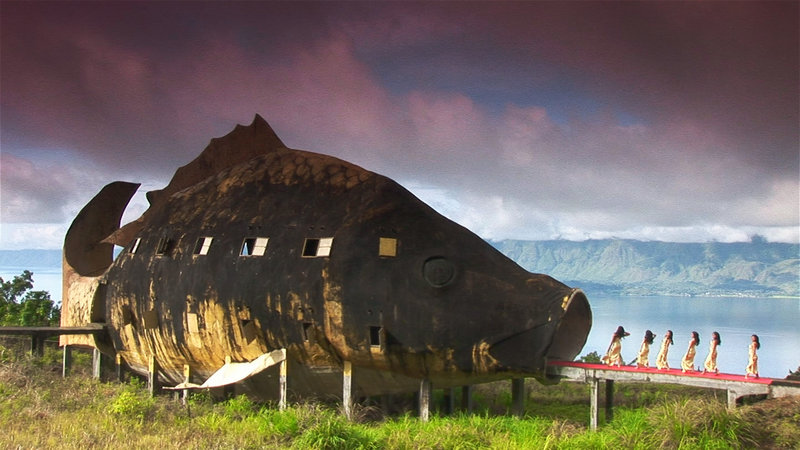If men who do evil are never punished, what do they turn into? How do they see themselves? What are their dreams?
Those are the questions posed and answered by “The Act of Killing,” the profoundly disturbing, unnerving and downright baffling new documentary screening at Space Gallery on Wednesday. Co-directed by Joshua Oppenheimer, Christine Cynn and someone credited as “Anonymous” (for reasons that will become very clear), the film takes a unique approach to its subjects — men responsible for one of the most horrific genocides in modern history.
After a failed coup in 1965, the Indonesian military government, employing local gangsters and paramilitary forces as executioners, orchestrated an anti-Communist purge (which also targeted intellectuals and ethnic Chinese) in which more than half a million people were murdered in a single year. Today, the same government remains in power, and the men who did the killing remain free and unchallenged for their actions, many functioning as government officials or respected and feared pillars of the community.
Never faced with retribution for their actions, these men operate in a sort of sociological petri dish, free to live their lives and craft their own narratives for their role in their country’s bloodiest hour.
So the filmmakers let them make their own movie.
Promised complete creative freedom to write and star in a feature film chronicling their deeds, these now old men (who, as young thugs, idolized Hollywood gangster movies above all else) gradually tell a horrifying story of their bloody actions, while at the same time offering up one of the most ludicrously inept films-within-a-film outside of a Christopher Guest movie.
Centering on notorious death-squad leader Anwar Congo, a dapper old man who looks like an Indonesian Morgan Freeman, the film is as chilling a portrait of unrepentant evil as I’ve ever seen, while at the same time showing Congo and his associates’ ideal cinematic vision of their legacy. Which, given free rein in front of the directors’ cameras, is alternately hilariously ridiculous and almost surreally terrifying.
Cajoling locals into portraying their former victims, the killers have them act out the terror and grief of those they murdered. Congo returns to a rooftop where he’d personally killed scores of people and shows off his dance moves before convincing a nervous extra to assume his favored killing position — hands tied and a long wire wrapped around the victim’s throat.
Covered in grotesque makeup, several of the men hear a man nervously tell how his stepfather had been dragged away in the night by men just like them before being drafted himself to play a torture victim in the ensuing scene. A scene depicting the massacre of a village by machete-wielding paramilitary troops quickly turns chaotic — and ugly. Coupled with the men’s predilection for drag, musical numbers, sentimentality and slapstick comedy, their insane narrative gradually becomes a surreal portrait of pure evil.
Incrementally, as intended, the directors get Congo and others to open up about their actions. Their individual rationalizations for the thousands of murders they committed, with or without theatrical flourish, are both queasily believable and morally incomprehensible. This is easily one of the most fascinating and singular documentaries I’ve seen all year.
The movie starts at 7:30 p.m. Wednesday, followed by a discussion with film critic Anthony Kaufman. Tickets are $8.
Dennis Perkins is a Portland freelance writer.
Copy the Story Link
Send questions/comments to the editors.





Success. Please wait for the page to reload. If the page does not reload within 5 seconds, please refresh the page.
Enter your email and password to access comments.
Hi, to comment on stories you must . This profile is in addition to your subscription and website login.
Already have a commenting profile? .
Invalid username/password.
Please check your email to confirm and complete your registration.
Only subscribers are eligible to post comments. Please subscribe or login first for digital access. Here’s why.
Use the form below to reset your password. When you've submitted your account email, we will send an email with a reset code.